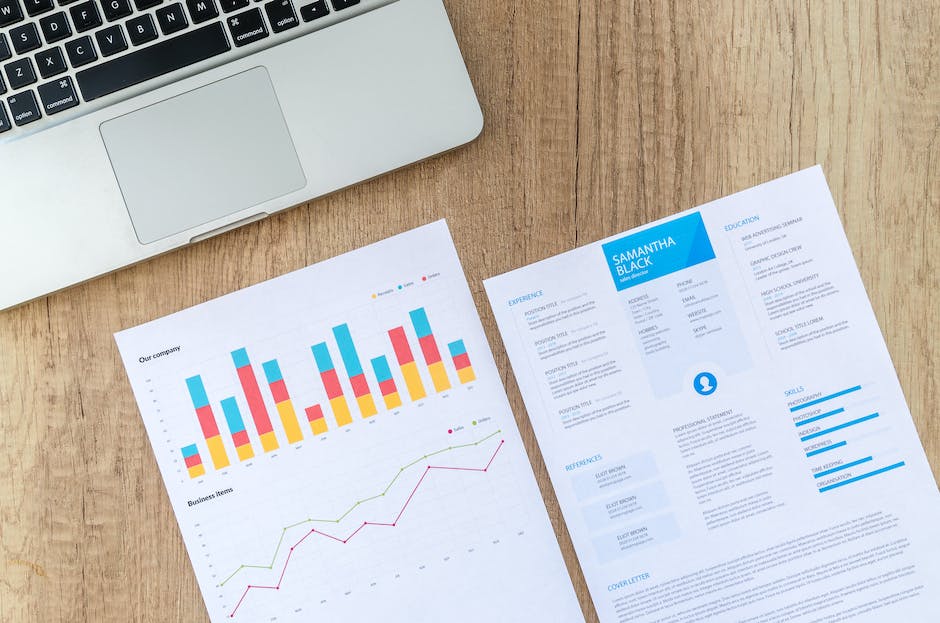Bespoke Predictive Analytics Software
What is Predictive analytics software?
Predictive analytics software is a type of software that utilizes statistical algorithms and machine learning techniques to analyze current and historical data and make predictions about future events. It is used in a variety of industries, including finance, healthcare, marketing, and manufacturing, to help businesses make informed decisions based on data-driven insights.Contact us if you are wanting to have a bespoke Predictive Analytics application developed?
One common use of predictive analytics software is in customer segmentation and targeting. By analyzing customer data, companies can identify which customers are most likely to make a purchase, and tailor their marketing efforts accordingly. This can help to increase sales and improve customer satisfaction.
Another use of predictive analytics software is in fraud detection. By analyzing patterns in data, companies can identify unusual activity that may be indicative of fraud or other types of misconduct. This can help to prevent financial losses and protect the integrity of a company's operations.
Predictive analytics software can also be used to optimize business processes. By analyzing data from various sources, companies can identify inefficiencies and bottlenecks, and develop strategies to improve efficiency and reduce costs.
Overall, predictive analytics software is a powerful tool for businesses looking to make data-driven decisions and gain a competitive edge in their respective industries. By leveraging the insights provided by this software, companies can improve operations, increase revenue, and create more satisfied customers.

What are the main functions of Predictive analytics software?
Predictive analytics software typically comprises several modules that work together to provide businesses with actionable insights into their operations. These modules include:1. Data collection and preparation: This module involves collecting and cleaning data from various sources such as internal databases, web scraping tools, and social media platforms. The data is then organized into a format that can be easily analyzed by the software.
2. Statistical modeling: This module involves using statistical techniques to analyze the data and create predictive models. The software will use algorithms and mathematical models to identify patterns, trends, and correlations in the data.
3. Machine learning: This module involves training the software to learn from the data and improve its predictive accuracy over time. The software will use techniques such as neural networks, decision trees, and clustering to identify patterns and trends in the data.
4. Visualization: This module involves presenting the data in a visual format that is easy for businesses to understand. The software will use charts, graphs, and other visualizations to highlight key insights and trends in the data.
With these modules, predictive analytics software can provide businesses with a range of functionality including:
1. Forecasting: The software can be used to predict future trends and outcomes based on historical data. This can help businesses to make informed decisions and stay ahead of the competition.
2. Optimization: The software can be used to identify areas where businesses can improve their operations and increase efficiency. This can help to reduce costs and improve overall performance.
3. Risk assessment: The software can be used to identify potential risks and threats to a business's operations. This can help businesses to mitigate those risks and take proactive measures to prevent them from occurring in the first place.
4. Customer segmentation: The software can be used to identify different segments of customers based on their behavior and preferences. This can help businesses to personalize their marketing efforts and improve customer satisfaction.
Overall, predictive analytics software can provide businesses with a powerful tool for gaining insights into their operations and making informed decisions.
Data / systems integration
Predictive analytics software is often integrated with various other systems to make the best use of the vast amounts of data gathered by these systems. Some of the commonly integrated systems include customer relationship management (CRM) systems, enterprise resource planning (ERP) systems, marketing automation systems, and data warehouses.To integrate predictive analytics software with other systems, APIs and other tools such as connectors, adapters, and middleware are used. These tools allow the systems to communicate with each other seamlessly, ensuring data consistency and providing a unified view of data.
Some considerations when integrating predictive analytics software with other systems include data format, data quality, security, and performance. It is essential to ensure that the data being integrated is in a format that can be read and analyzed by the predictive analytics software. Data quality is also important, and it is essential to have measures in place to ensure that the data being stored and analyzed is accurate and up-to-date. Security measures should also be implemented to protect sensitive data during transmission and storage. Finally, the integration should be optimized for performance to ensure that the predictive analytics software can process large amounts of data efficiently.
Overall, integrating predictive analytics software with other systems can greatly improve data analysis and decision-making capabilities, providing businesses with significant competitive advantages.
Who uses Predictive analytics software?
Predictive analytics software is utilized across many different industries, including healthcare, finance, retail, manufacturing, and more. It is commonly used by organizations of all sizes, from small startups to multinational corporations.In the healthcare industry, predictive analytics software is used to identify patients at risk of developing chronic illnesses or complications, allowing for earlier intervention and more effective treatment plans. In finance, it is used to detect fraudulent activity and predict market trends. In retail, predictive analytics software is used to better understand customer behavior and optimize pricing strategies. In manufacturing, it is used to predict equipment failures and optimize production processes.
In short, any organization that deals with vast amounts of data and wants to use it to gain a competitive advantage can benefit from custom predictive analytics software. By accurately analyzing data and predicting future outcomes, businesses can make data-driven decisions and stay ahead of the competition.

Benefits of Predictive analytics software
Organisations use predictive analytics software for a number of reasons, but primarily to gain a competitive edge in their industry. By leveraging past data and trends, predictive analytics software can provide insights into future customer behavior, market trends and other patterns that can inform business strategy and decision-making.The benefits of custom predictive analytics software are many, including improved accuracy and efficiency in decision-making, enhanced customer experiences and more effective resource allocation. Additionally, predictive analytics can help identify opportunities for growth and revenue generation, while also reducing risk and improving overall operational efficiency.
Some other key benefits of predictive analytics software include:
1. Increased precision and accuracy in forecasting
2. Better identification of customer segments and target markets
3. Reduction of operational costs and profitability improvement
4. Greater innovation and agility in response to changing markets and trends
5. Improved product and service offerings and customer satisfaction
Overall, predictive analytics software can be a powerful tool to enable growth and success in any industry. By working with a bespoke software development company, organisations can develop custom applications that meet their unique needs and enable them to stay ahead of the competition.
Some of the players in the Predictive analytics software market
1. IBM Watson Studio: IBM Watson Studio is a leading predictive analytics tool with a wide range of features such as machine learning, deep learning, and natural language processing. It allows businesses to interpret structured and unstructured data with ease, thereby improving decision-making. However, some customers have raised concerns about the steep learning curve and cost.2. RapidMiner: RapidMiner is a powerful predictive analytics software that provides a user-friendly interface. It offers a wide range of features such as regression, clustering, and association rules. The tool also supports numerous data sources, including databases and social media. The only drawback is that the software can be a bit slow when dealing with large datasets.
3. SAS Predictive Analytics: SAS Predictive Analytics is a robust platform that provides a plethora of features for data exploration, data visualization, and predictive modeling. It can handle structured and unstructured data, and it supports machine learning and artificial intelligence algorithms. However, customers have criticized the tool's expensive pricing and a slightly steep learning curve.
4. Microsoft Azure Machine Learning Studio: Microsoft Azure Machine Learning Studio is a cloud-based platform that provides a user-friendly interface for predictive analytics. The tool allows businesses to build and train machine learning models quickly and easily. However, customers have raised concerns about limited customization features and a lack of integration with other tools.
5. Alteryx: Alteryx is a powerful predictive analytics tool that offers a drag-and-drop interface for data scientists and business analysts. The platform provides extensive features for data preparation, blending, and predictive modeling. However, users have reported that the software can be a bit slow when dealing with large datasets, and that the price can be quite steep for small businesses.
In conclusion, each of the above-listed brands of predictive analytics software has its unique advantages and disadvantages. It is essential for business owners to understand their specific needs and select a tool that best suits their needs. Overall, hiring a bespoke software development company to develop a custom solution can often result in a better fit for specific business needs.
Benefits of off-the-shelf Predictive analytics software
Off-the-shelf predictive analytics software offers a number of benefits to businesses. Firstly, it can provide a cost-effective solution - these products are often priced to appeal to a wide range of businesses, and can be implemented without investing in tailored development work. Secondly, they are often more accessible - vendors of these products typically provide support and training to help businesses get the most out of their products. Thirdly, they can be quicker to implement - purchasing an off-the-shelf product can be quicker than commissioning and developing a bespoke solution. Finally, these products are often tried and tested - vendors tend to have a large customer base, meaning that their products are more robust and proven.Limitations of off-the-shelf Predictive analytics software
Off-the-shelf predictive analytics software can be useful for many businesses, but it's important to note that they do have their limitations. One of the primary limitations is that they are generic by nature and do not take into account the specific needs of individual businesses. This means that there may be features that a business requires that are not available in the off-the-shelf software.Another limitation is that the algorithms used in off-the-shelf predictive analytics software may not be suitable for all types of data. Some datasets may require more advanced algorithms, which may not be included in the off-the-shelf software. This can lead to inaccurate predictions and analyses, which can have a negative impact on a business's decision-making process.
Off-the-shelf predictive analytics software may also have limited integration capabilities with other software and systems used by a business. This can make it difficult for businesses to share data between systems, which can limit the accuracy and usefulness of the predictive analytics software.
Finally, off-the-shelf predictive analytics software may not be able to scale to meet the growing needs of a business. As a business grows, its data needs may change, and the software may not be able to keep up. This can limit the usefulness of the software and may require a business to invest in additional software or custom development to meet its needs.
Overall, while off-the-shelf predictive analytics software can be a great solution for many businesses, it's important to understand its limitations and consider custom development if these limitations may impact the accuracy and usefulness of the software for your business.
Is bespoke Predictive analytics software a viable option?
Bespoke, or partially bespoke, predictive analytics software offers several benefits to businesses. First and foremost, custom software can be tailored to address the specific needs of a business. This means that the software can be designed to incorporate the company's unique data sources, which may not be accessible through off-the-shelf solutions. Also, bespoke software can be designed to provide insights and predictions that are relevant to the company's operations, which ultimately leads to more informed decision-making.Additionally, bespoke predictive analytics software can help businesses reduce costs and improve efficiency. For example, many companies use predictive maintenance tools to reduce downtime and improve maintenance scheduling. With customized software, businesses can automate this process and improve accuracy, leading to cost savings, better equipment reliability, and improved safety.
One successful use case is in the healthcare industry, where predictive analytics software is used to forecast patient demand and optimize staff scheduling. This has led to more efficient use of resources, reduced wait times, and better patient outcomes. In the retail sector, predictive analytics software can be used to forecast demand and optimize inventory management. This can lead to cost savings and reduced waste, as businesses can reduce overstocking and stockouts.
Overall, bespoke predictive analytics software can offer significant benefits to businesses, including improved decision-making, cost savings, and greater efficiency. By leveraging the power of predictive analytics, businesses can gain a competitive advantage and improve their bottom line.

Fun facts about Predictive analytics software
Did you know that the global predictive analytics market is expected to grow from $5.24 billion in 2017 to $12.41 billion by 2022? This means that more and more businesses are turning to predictive analytics software to help them make better decisions based on data.One fascinating trend in predictive analytics is the use of machine learning algorithms to power these systems. Machine learning algorithms can analyze large amounts of data in real-time and provide insights and predictions that would be impossible for a human to determine on their own.
Another interesting fact about predictive analytics software is that it is being used in a wide variety of industries, from healthcare to retail to finance. For example, banks are using predictive analytics to detect fraud, while retailers are using it to better understand consumer behavior and make more informed business decisions.
Predictive analytics is also becoming more accessible to businesses of all sizes, thanks to the increasing availability of cloud-based software. This means that even small businesses can take advantage of the benefits of predictive analytics without needing to invest in expensive hardware or software.
Overall, predictive analytics software is an exciting and rapidly developing field that has the potential to revolutionize the way businesses operate. If you're considering having a custom predictive analytics software developed for your business, it's important to work with a company that has a deep understanding of the market and the latest trends and technologies.
Predictive analytics software FAQ
1. Why should my business invest in custom predictive analytics software?Custom predictive analytics software can provide valuable insights into your business operations, customer behavior, and market trends. With predictive analytics, you can make data-driven decisions that can save you time and money, mitigate risk, and improve your bottom line.
2. How do I know if my business is ready for custom predictive analytics software?
If your business is collecting large amounts of data or struggling to make sense of the information you currently have, custom predictive analytics software could be a valuable investment. Additionally, if you are looking to gain a competitive edge or stay ahead of rapidly changing market conditions, predictive analytics is essential.
3. What is the development process for custom predictive analytics software?
The development process for custom predictive analytics software will vary based on the needs of your business. Generally, it will involve an initial consultation to assess your data needs, followed by the development and testing of the software. Throughout the process, your software development team should provide regular updates and ensure that the software is meeting your business needs.
4. What kind of data is needed to create custom predictive analytics software?
The data needed to create custom predictive analytics software will depend on the goals of your business. Typically, your software development team will draw data from a variety of sources, including internal company data, industry trends, and customer behavior patterns.
5. How long does it take to develop custom predictive analytics software?
The time it takes to develop custom predictive analytics software will vary based on the complexity of your business needs. Generally, the process can take several months to a year or more.
6. Can my business use off-the-shelf predictive analytics software instead of custom software?
Off-the-shelf predictive analytics software can be useful, but it may not be tailored to the specific needs and goals of your business. Custom predictive analytics software can provide more personalized insights and improve the accuracy of your predictions.
7. How much does custom predictive analytics software development cost?
The cost of custom predictive analytics software development will vary based on the complexity of your business needs, the amount of data to be analyzed, and other factors. Your software development team will provide you with a quote based on your specific needs.
Next Steps?
Are you a business owner looking to stay ahead of the competition with cutting-edge technology? Then it's time to invest in custom predictive analytics software. Our team of experts has a wealth of market knowledge and expertise in predictive analytics software that can help take your business to the next level.Imagine having the ability to make data-driven decisions with confidence. With a custom predictive analytics software, you can get accurate predictions about customer behavior, market trends, and much more. This will give you a competitive advantage and help you stay ahead of the curve.
Our team understands that every business is unique. That's why we work closely with our clients to create bespoke solutions that are tailored to their specific needs. Whether you need systems integration, data migration, or something else entirely, we deliver top-notch results that will exceed your expectations.
So don't hesitate any longer! Get in touch with us today to discuss how we can help take your business to the next level with custom predictive analytics software. We're looking forward to hearing from you!
Read more about the main software category Content Creation Applications.
Other services in Content Creation Applications category:
Want a quick quote for the development of custom Predictive Analytics Application?
Contact us to discuss your questions about bespoke Predictive Analytics Applications.
